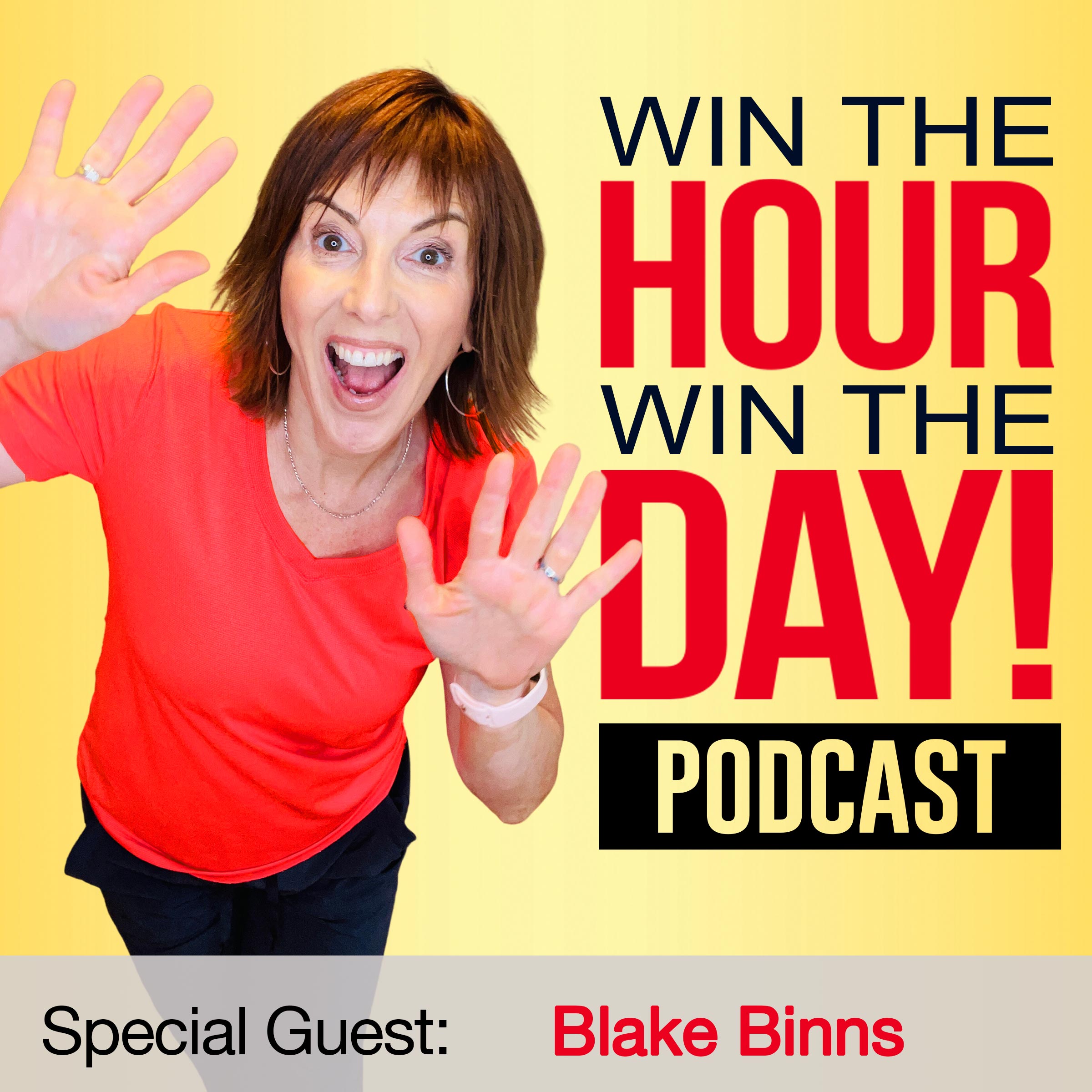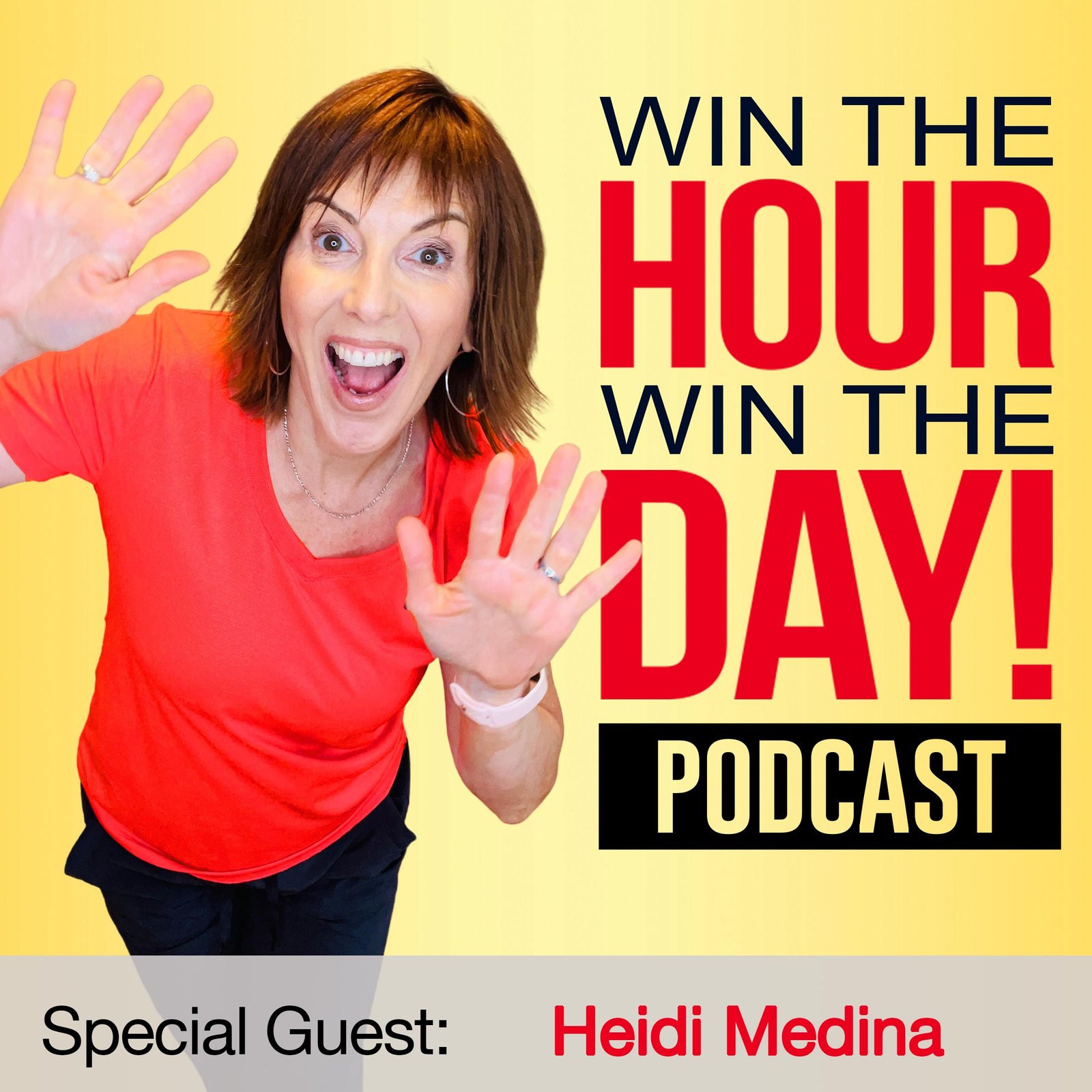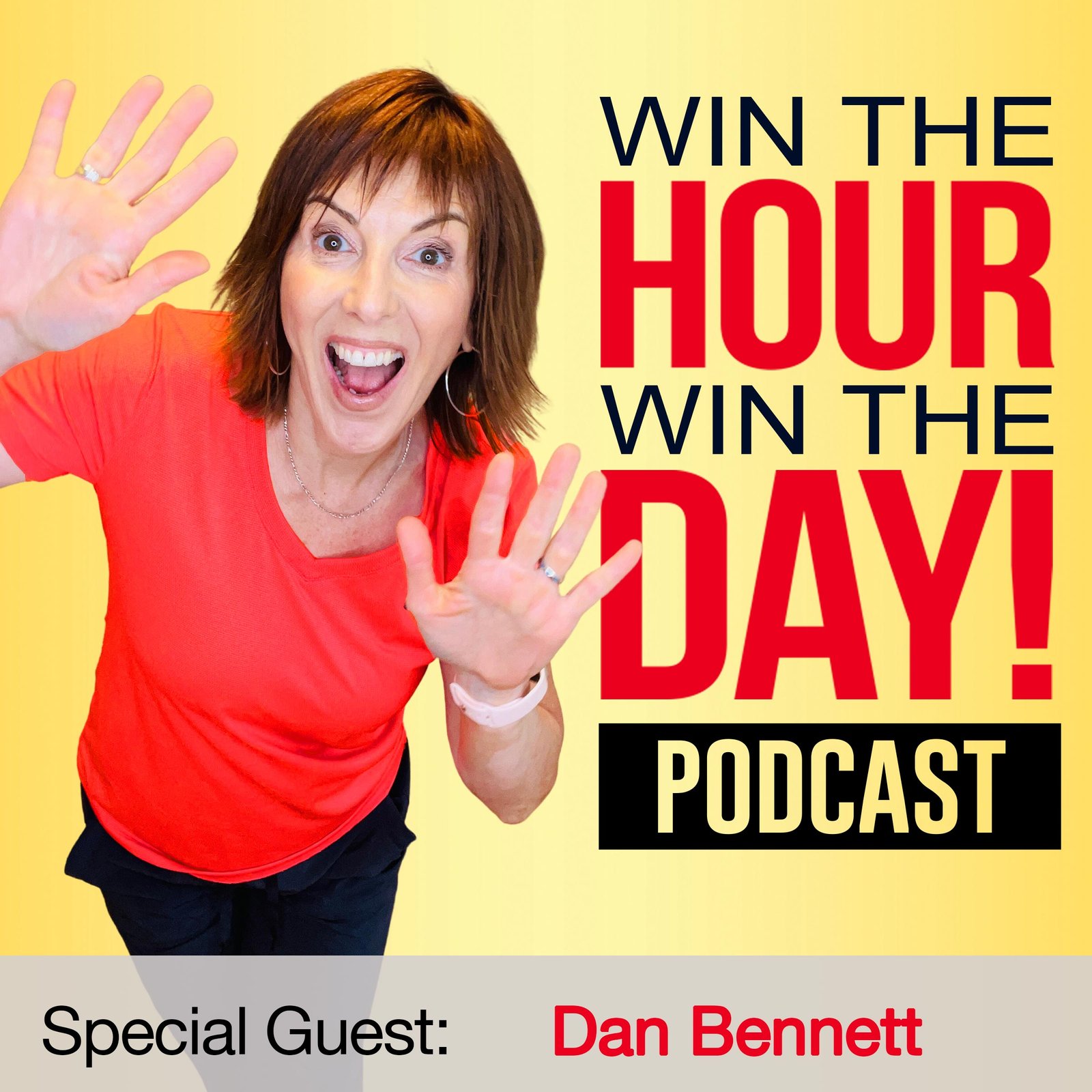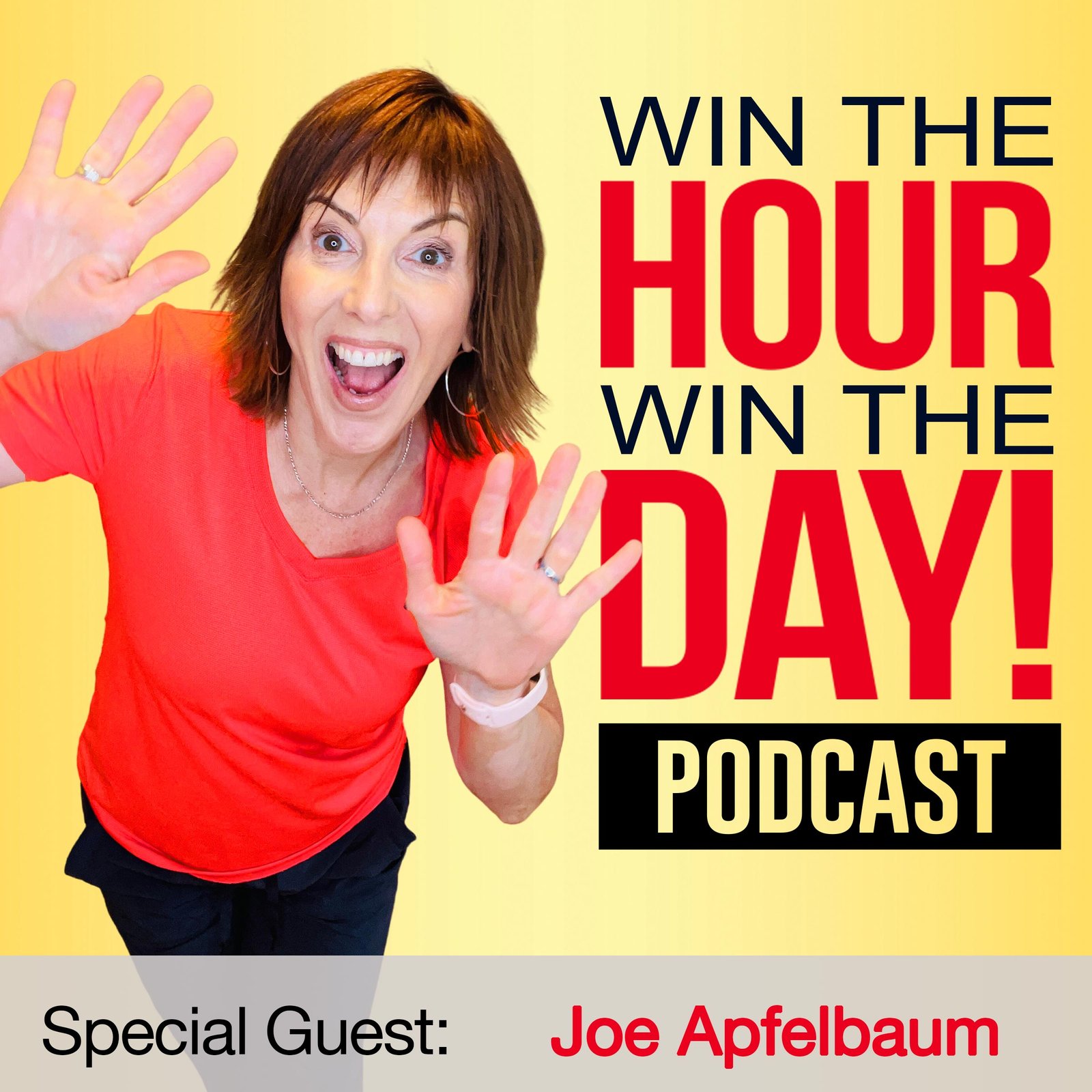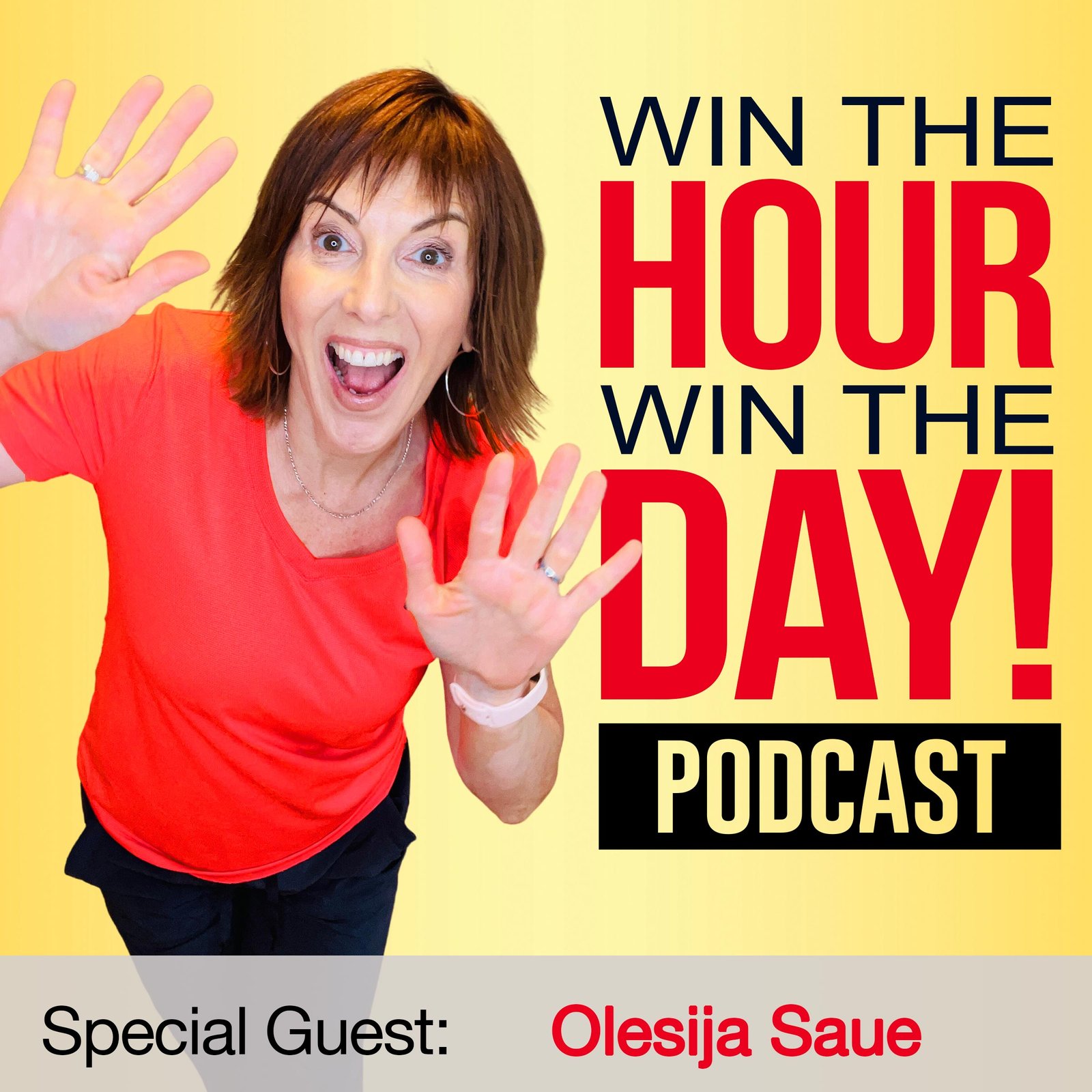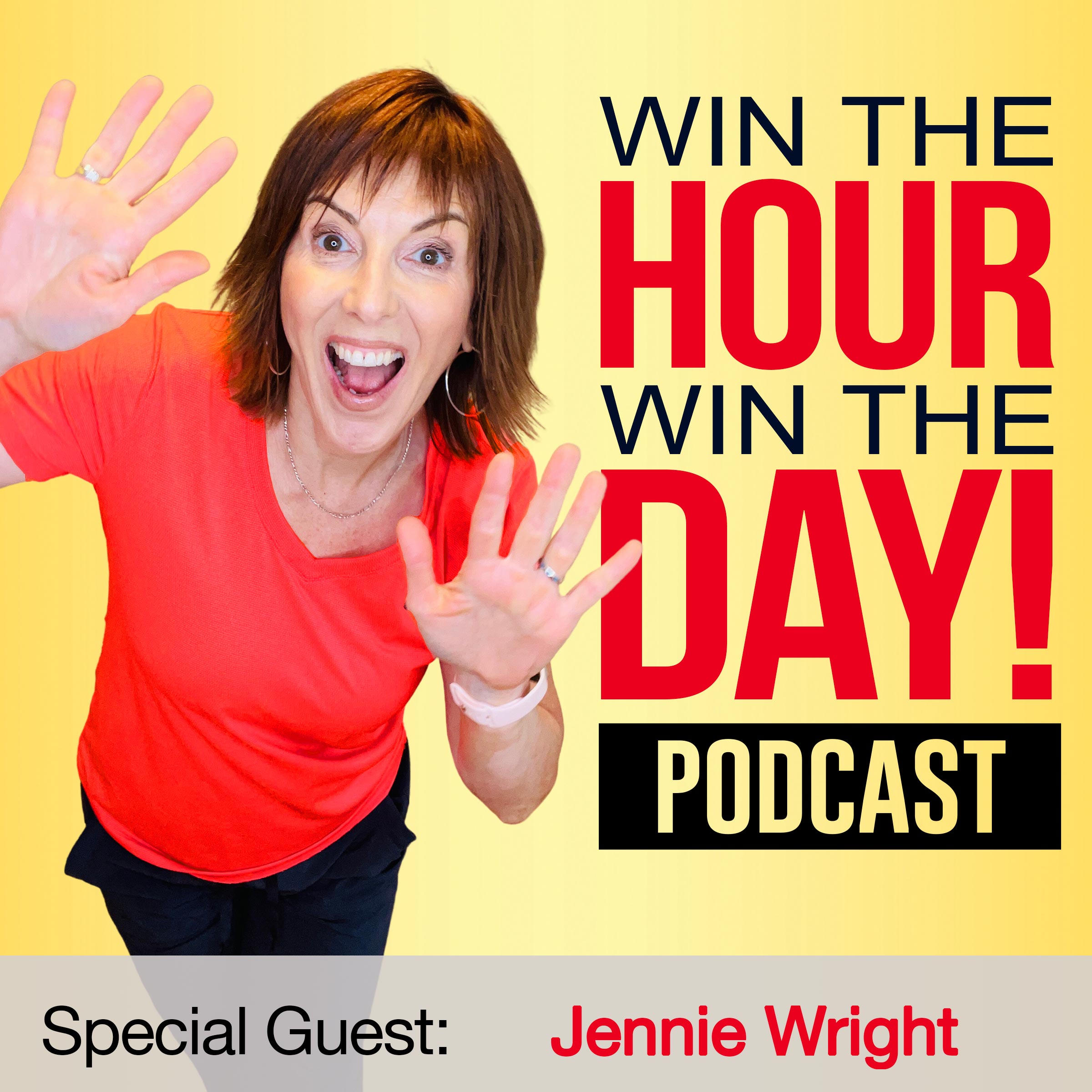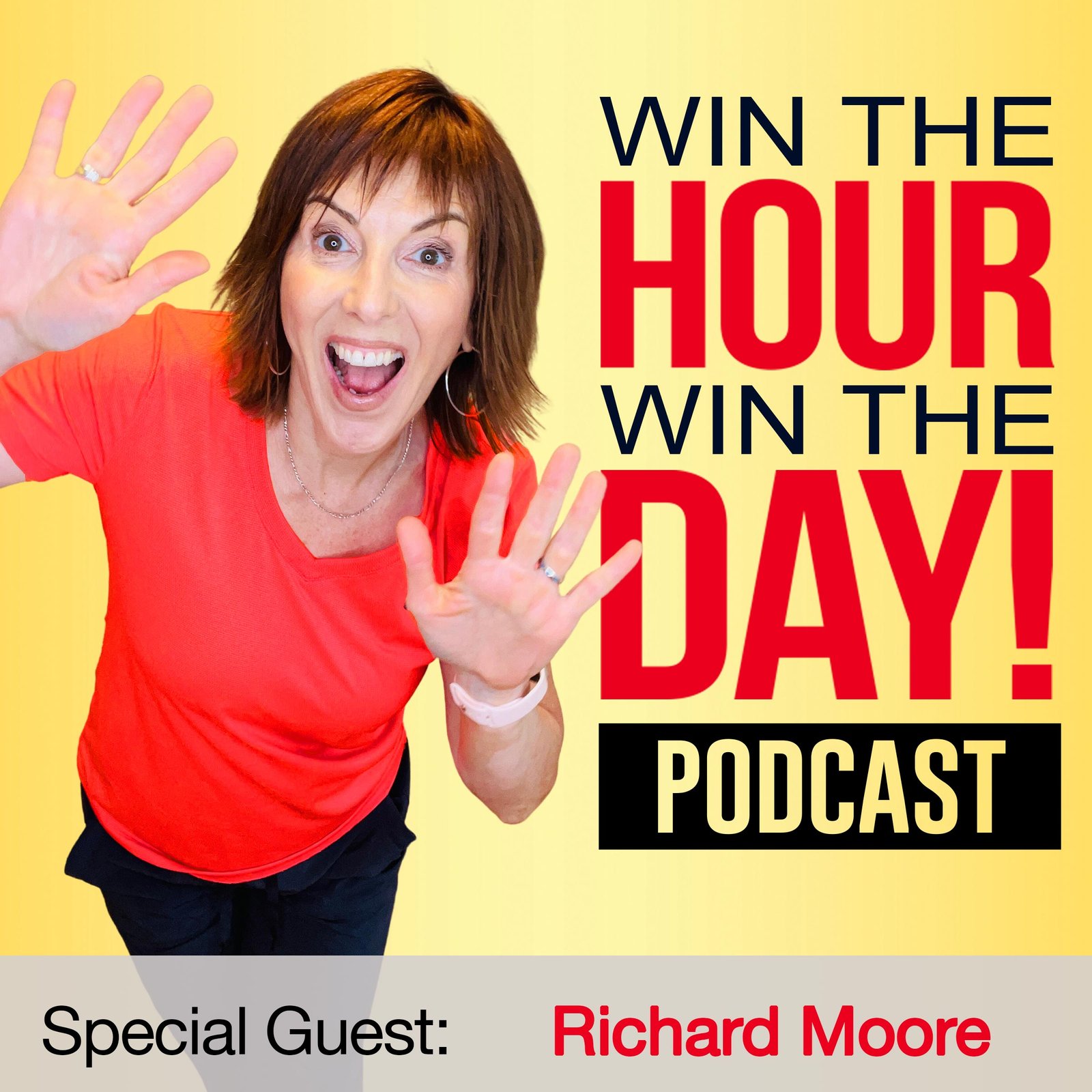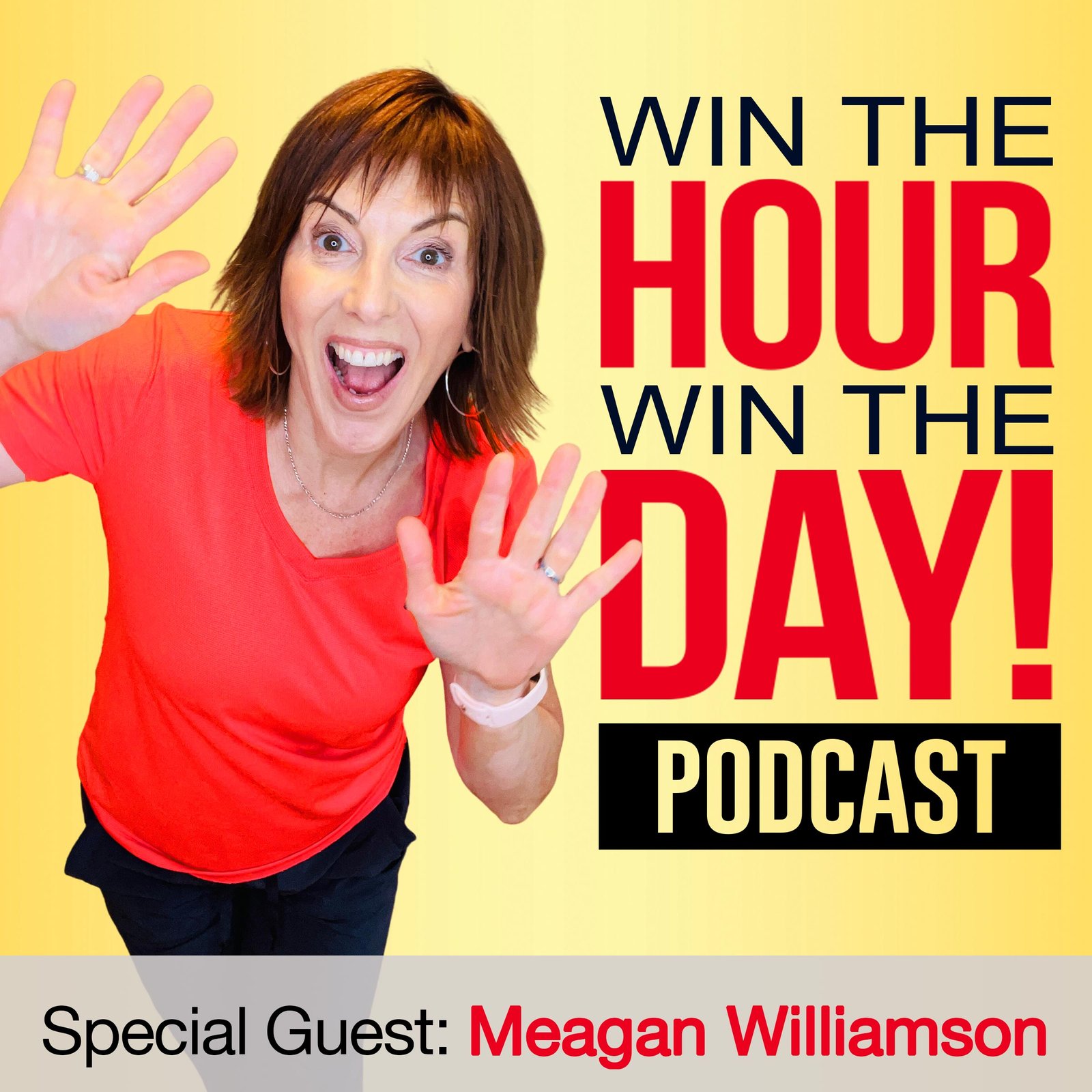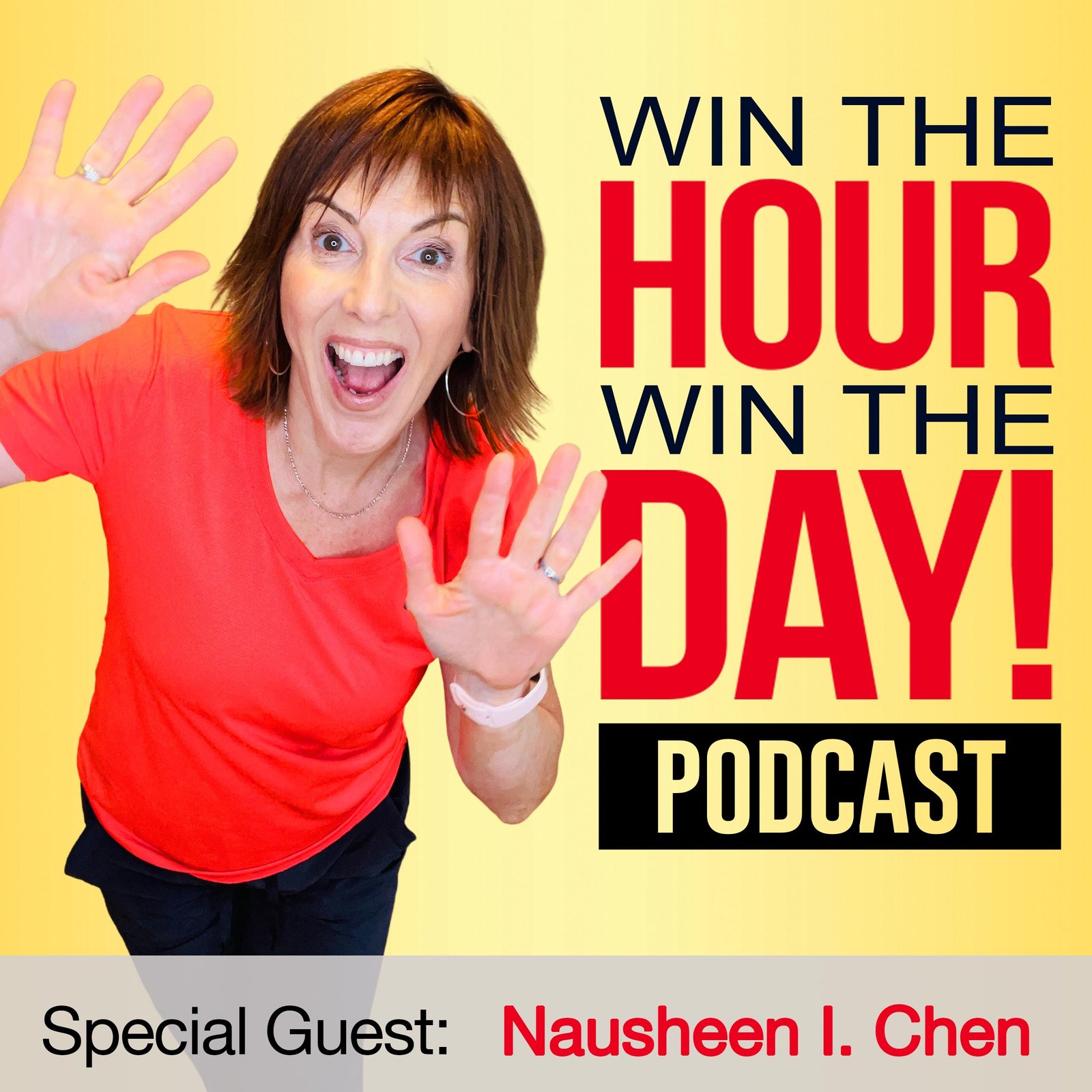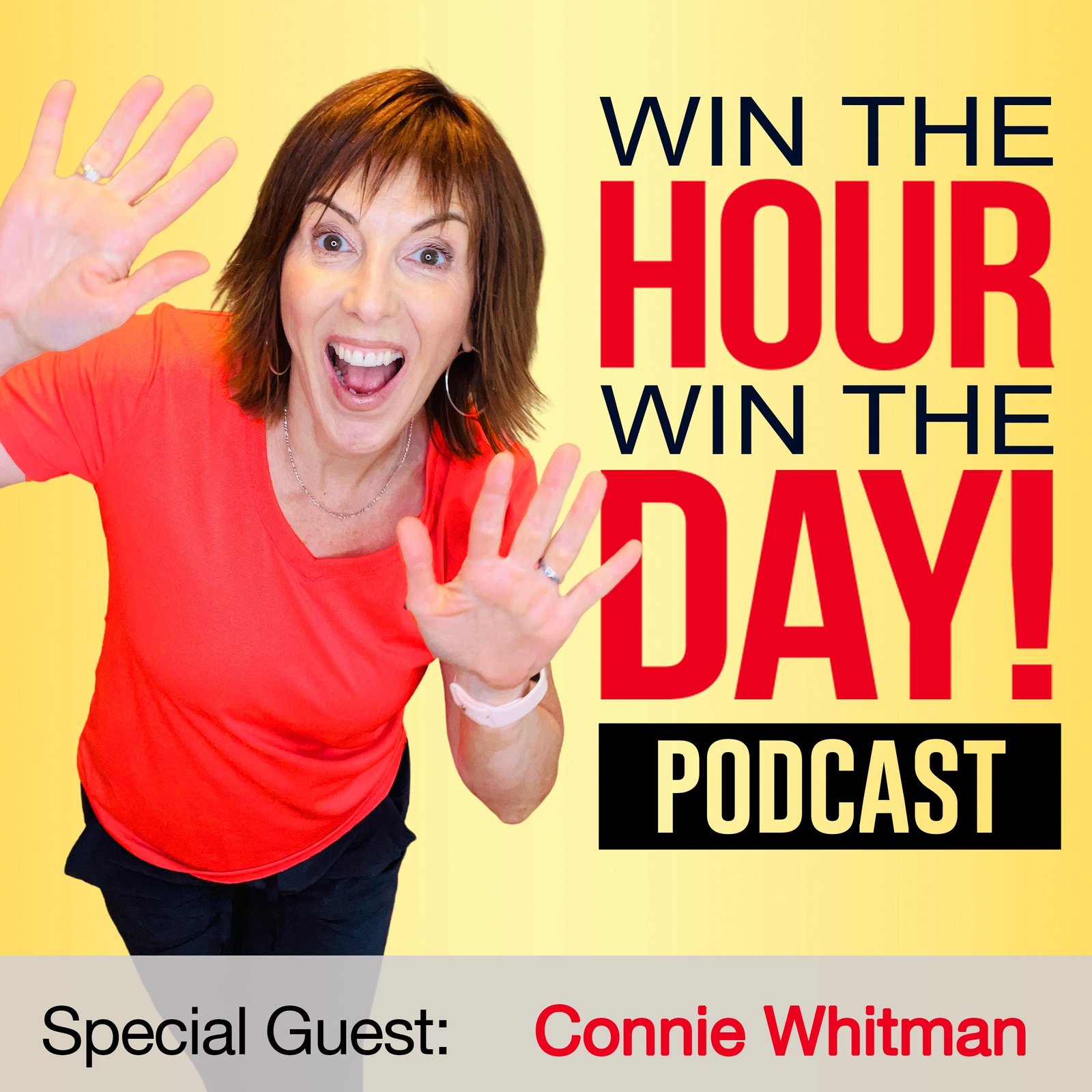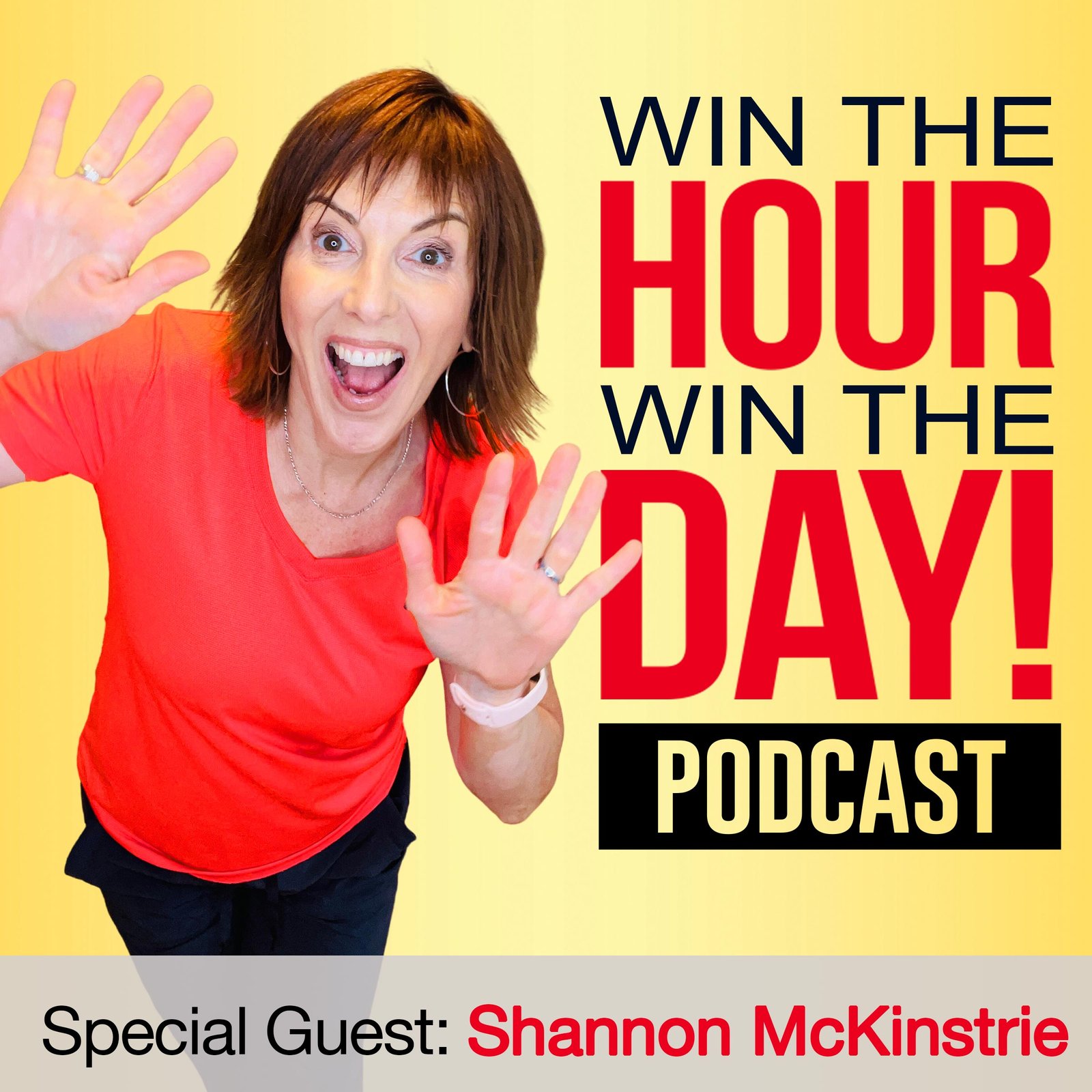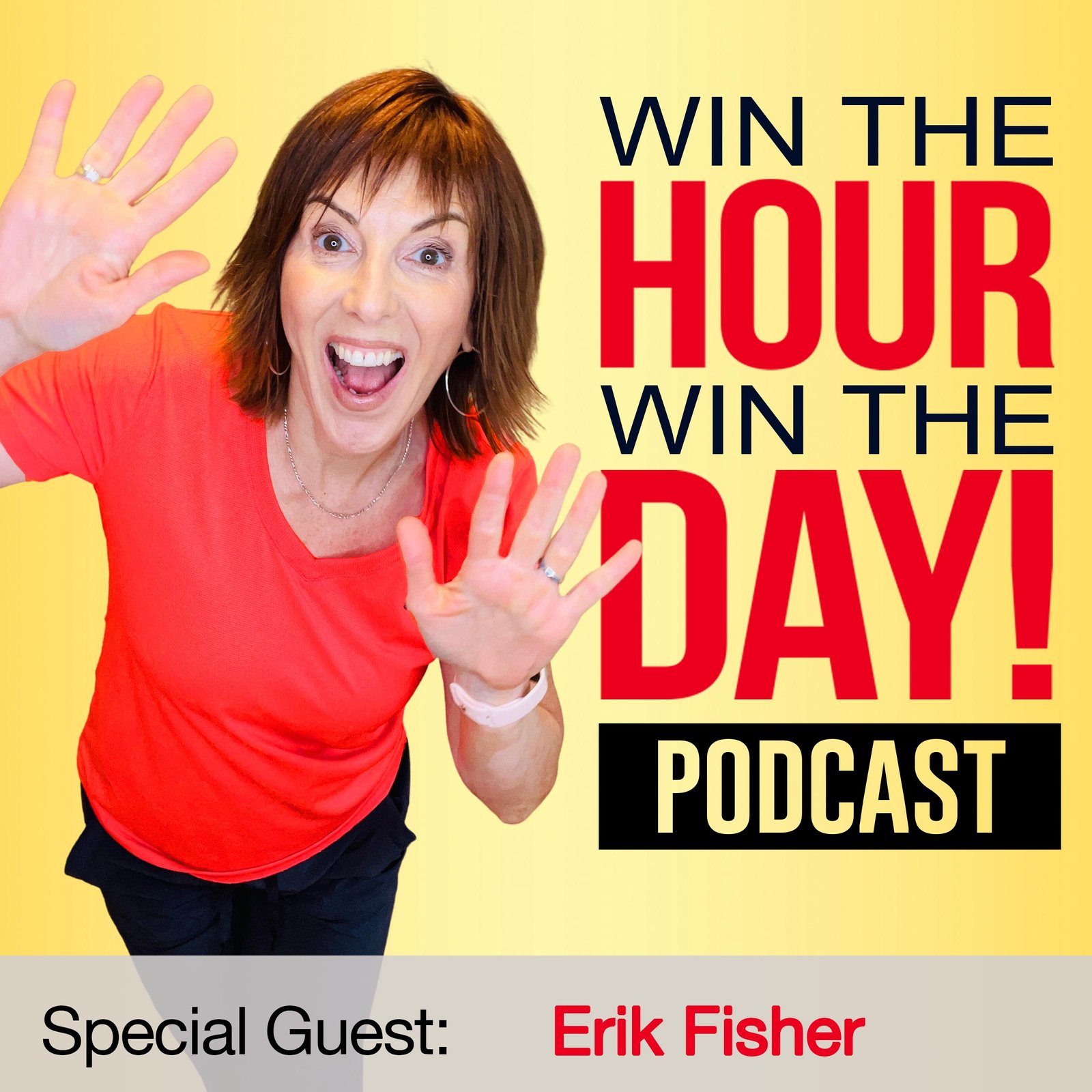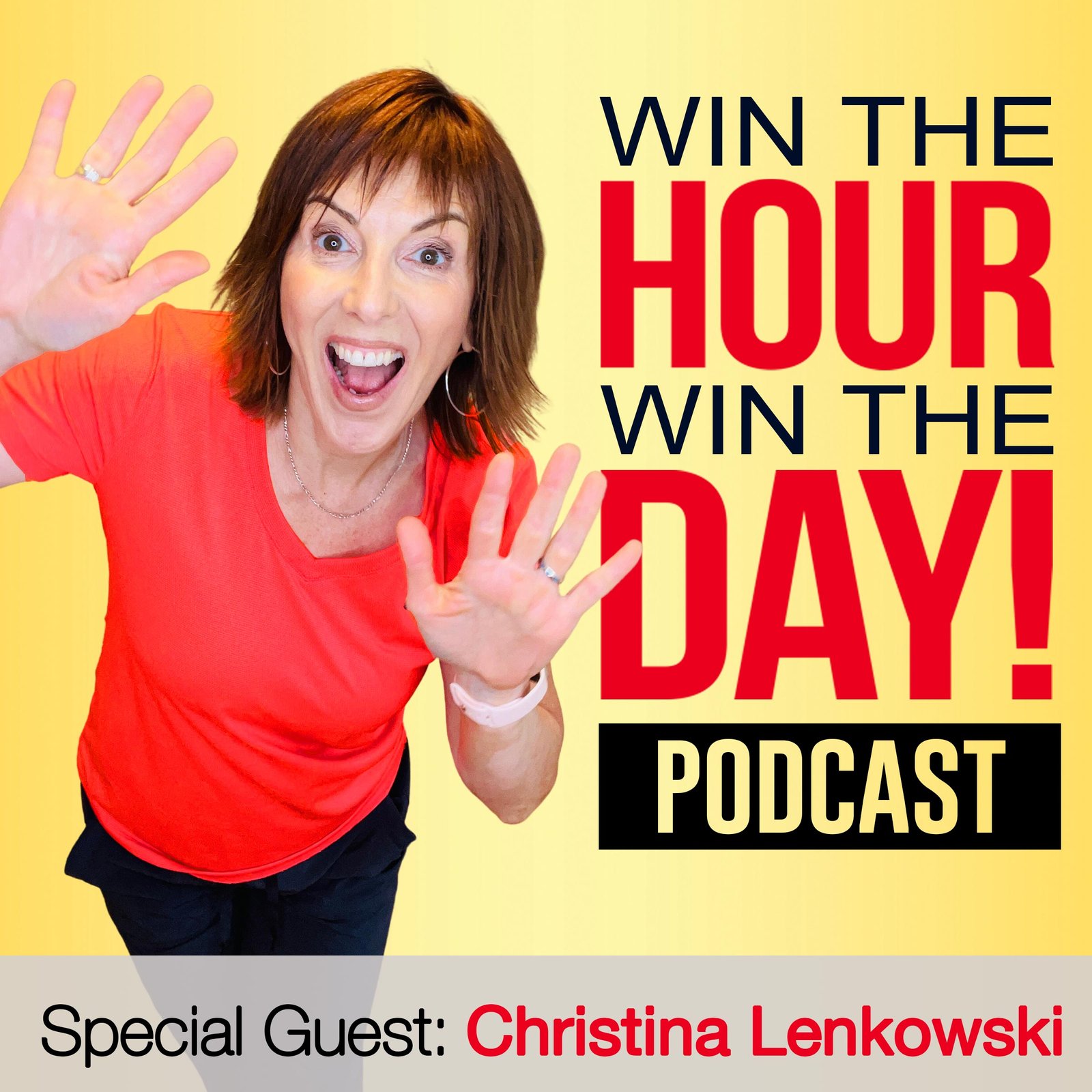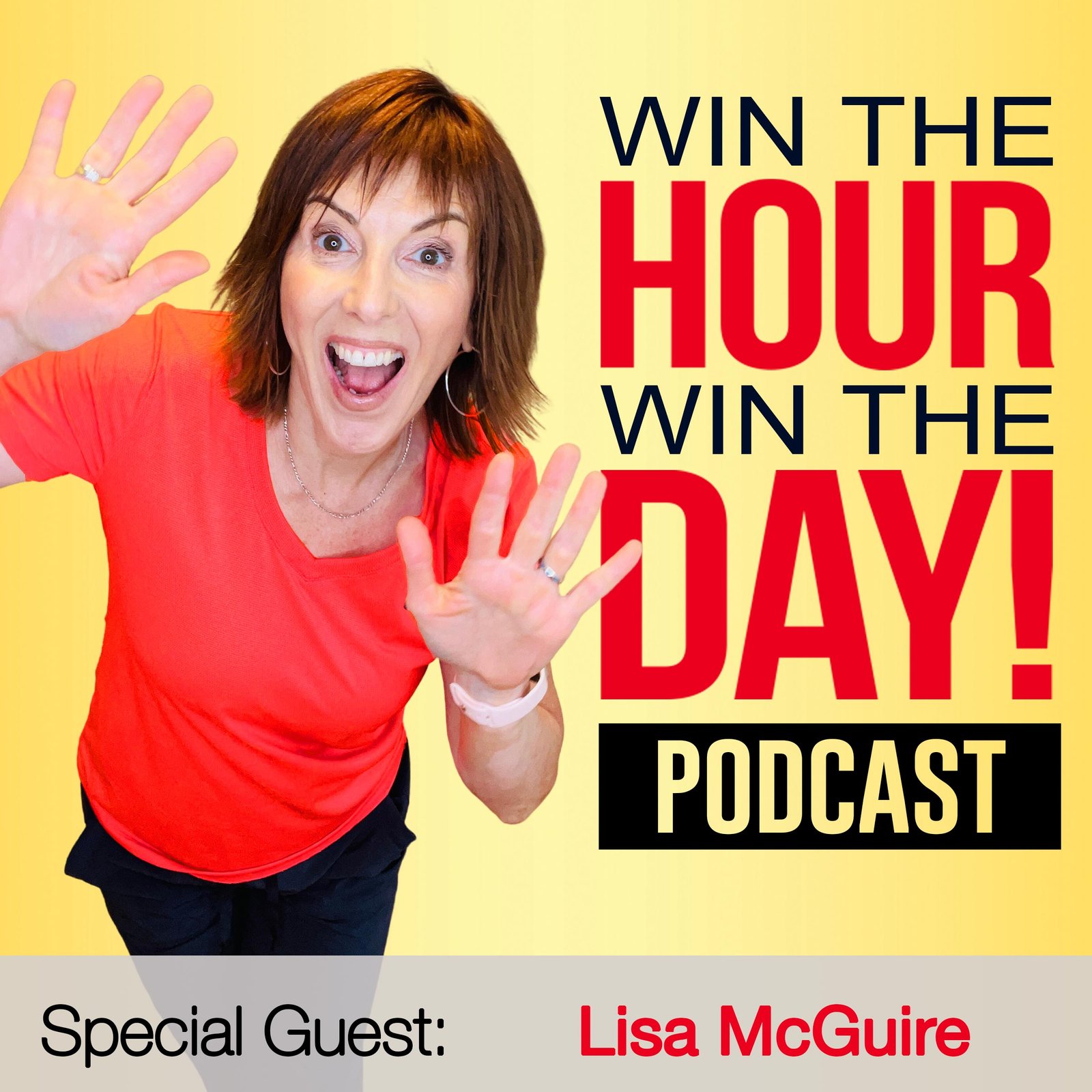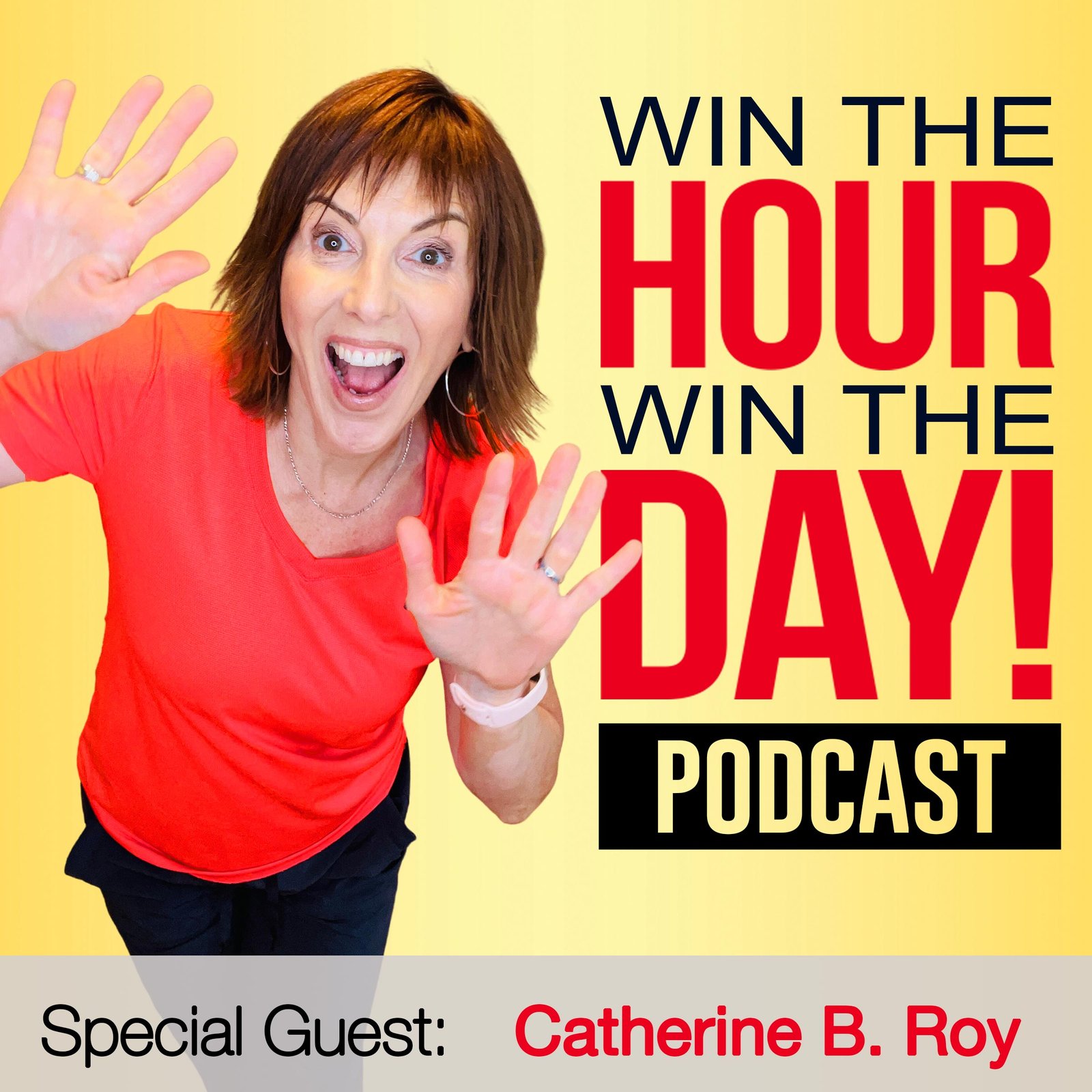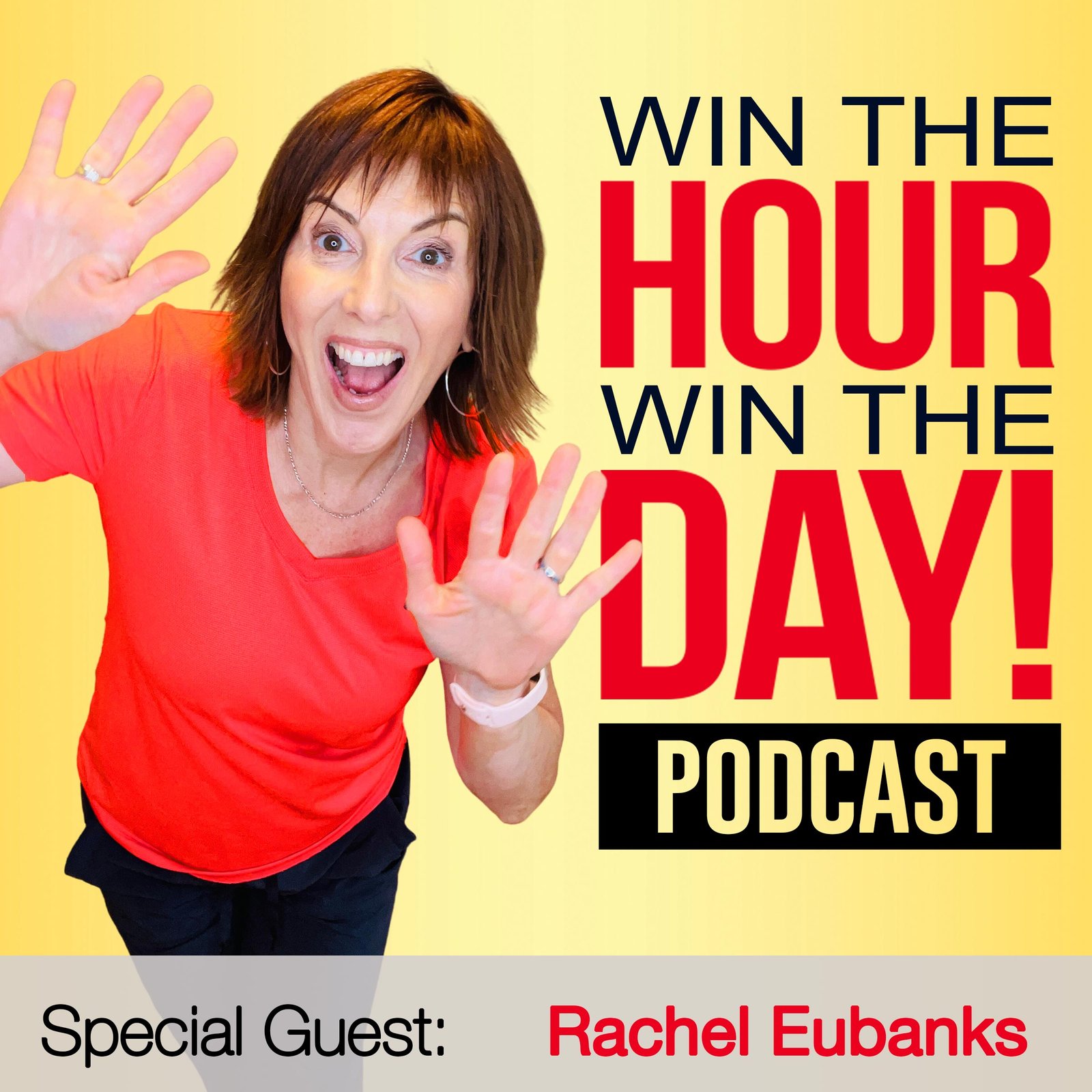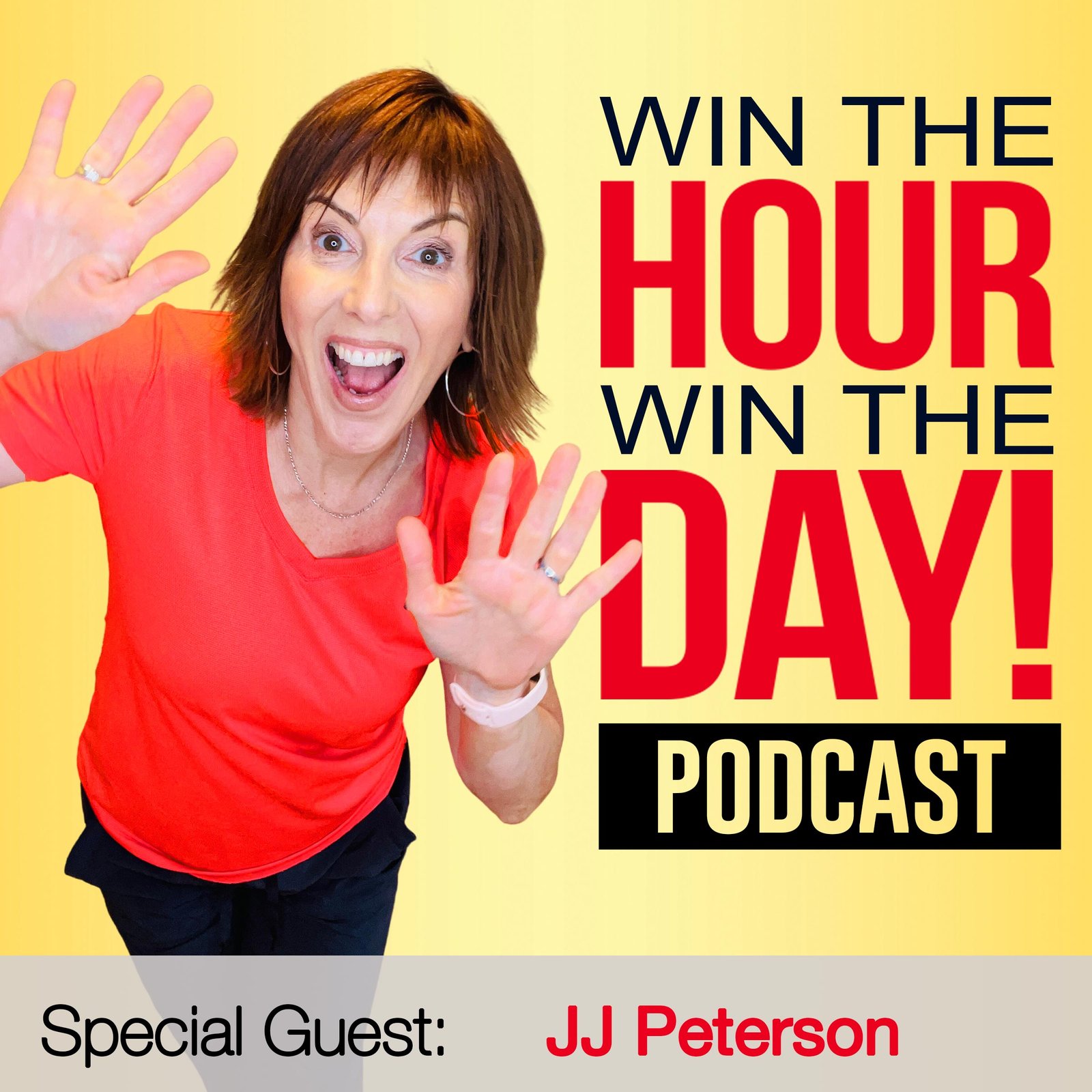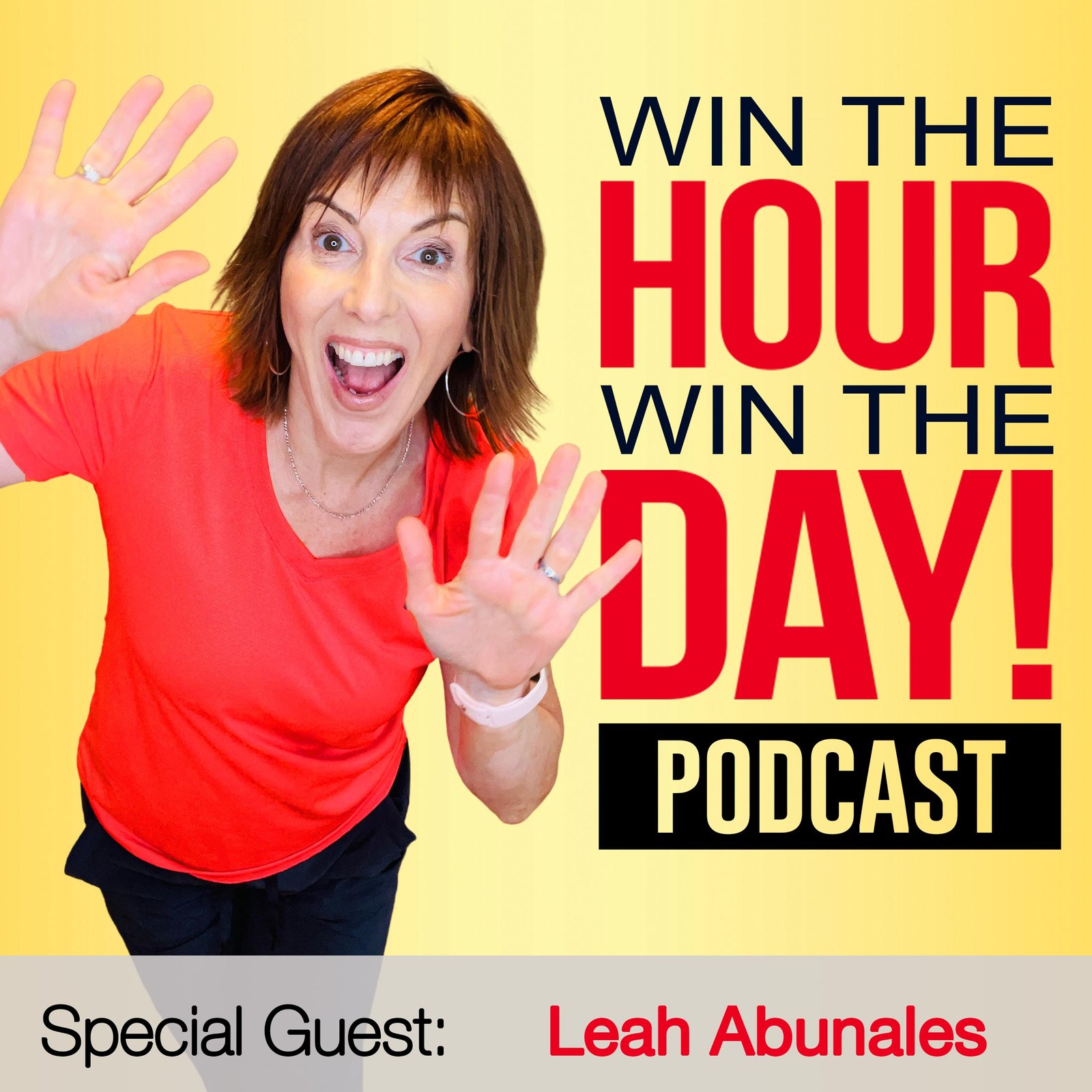Episode Summary This week’s episode of Win The Hour, Win The Day Podcast is...
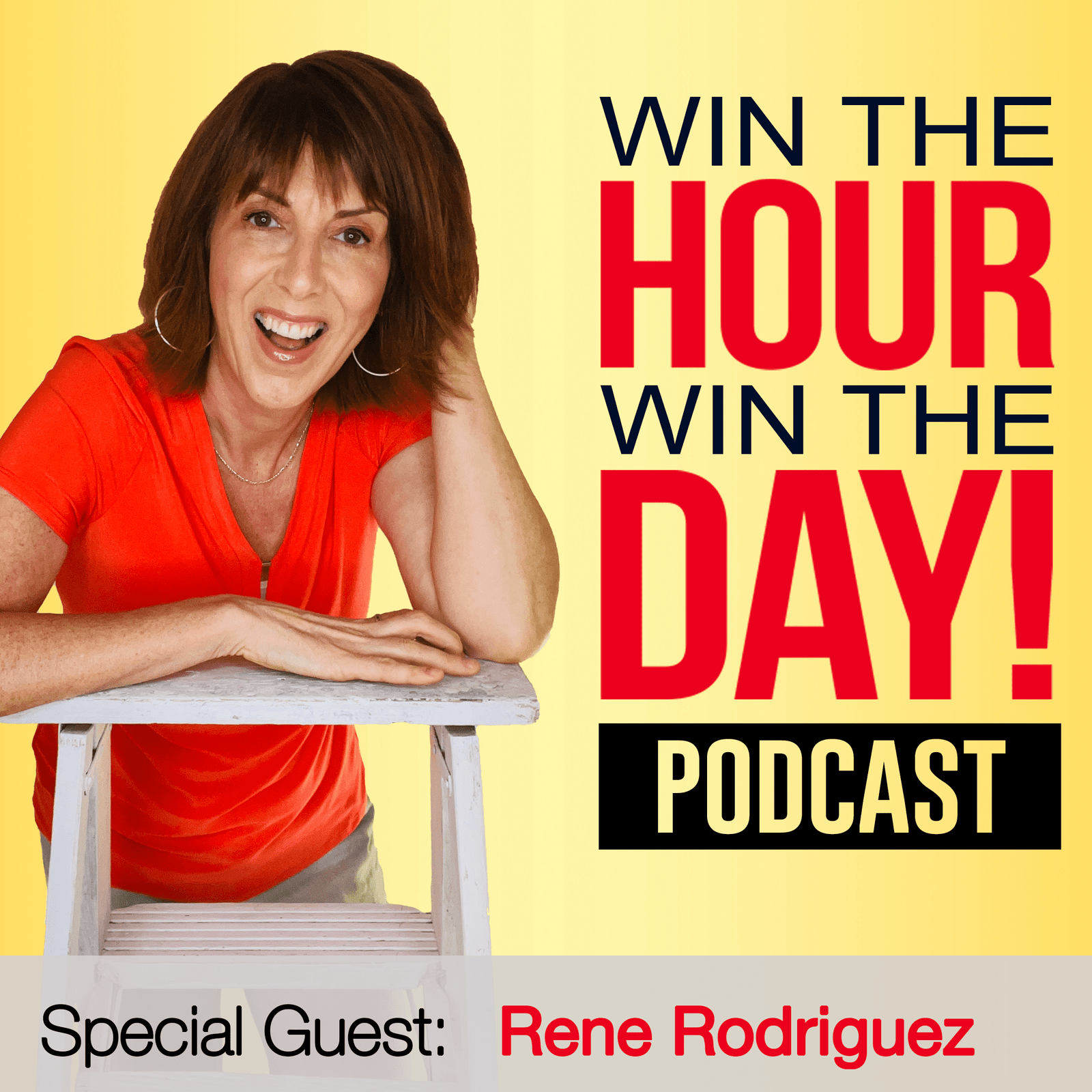
Are You Ready For Your Next Big Win?
Know your entrepreneur personality and I’ll take it from there!
Recent Podcast Episodes
Preventing Burnout with Smart Work Tools! with Kris Ward
Episode Summary This week’s episode of Win The Hour, Win The Day Podcast is...
Master Social Selling: Heidi Medina’s Strategies for Engagement
Episode Summary This week’s episode of Win The Hour, Win The Day Podcast is...
Boost Productivity and Master Storytelling! with AmondaRose Igoe
Episode Summary This week’s episode of Win The Hour, Win The Day Podcast is...
Master Video Marketing: Top Tips for Entrepreneurs with Dan Bennett
Episode Summary This week’s episode of Win The Hour, Win The Day Podcast is...
Boost Your LinkedIn Strategy with AI Tools for Enhanced Productivity! with Joe Apfelbaum
Episode Summary This week’s episode of Win The Hour, Win The Day Podcast is...
Mastering Personal Branding with NLP Techniques! with Olesija Saue
Episode Summary This week’s episode of Win The Hour, Win The Day Podcast is...
Innovative Lead Generation and Email Automation Secrets with Jennie Wright
Episode Summary This week’s episode of Win The Hour, Win The Day Podcast is...
PR Strategies for Diverse Entrepreneurial Impact! with Jennifer Singh
Episode Summary This week’s episode of Win The Hour, Win The Day Podcast is...
Convert More Clients on LinkedIn with Richard Moore
Episode Summary This week’s episode of Win The Hour, Win The Day Podcast is...
Master Business Growth on Pinterest with Meagan Williamson
Episode Summary This week’s episode of Win The Hour, Win The Day Podcast is...
24/7 Sales Boost: Video Marketing Secrets with Alex Sheridan
Episode Summary This week’s episode of Win The Hour, Win The Day Podcast is...
Master Public Speaking Tips with Nausheen Chen!
Episode Summary This week’s episode of Win The Hour, Win The Day Podcast is...
Beating The Burnout With Connie Whitman’s Success Story
Episode Summary This week’s episode of Win The Hour, Win The Day Podcast interviews,...
Craft Your Social Media Content Strategy With Shannon McKinstrie
Episode Summary This week’s episode of Win The Hour, Win The Day Podcast is...
Boost Your Productivity with AI Tools: A Deep Dive with Erik Fisher
Episode Summary This week’s episode of Win The Hour, Win The Day Podcast is...
Boost Visibility: Repurpose Content and Leverage Podcasts With Christina Lenkowski
Episode Summary This week’s episode of Win The Hour, Win The Day Podcast is...
Master Personal Branding & Storytelling with Lisa McGuire
Episode Summary This week’s episode of Win The Hour, Win The Day Podcast is...
Boost Business on LinkedIn with Catherine B. Roy’s Strategies
Episode Summary This week’s episode of Win The Hour, Win The Day Podcast is...
Scale Your Business: Optimizing Virtual Assistant Services with Kris Ward & Rachel Eubanks
Episode Summary This week’s episode of Win The Hour, Win The Day Podcast is...
Affordable PR Mastery: Crystal Richard Unveils Modern Techniques
Episode Summary This week’s episode of Win The Hour, Win The Day Podcast is...
Mastering Business Storytelling with JJ Peterson’s Guide
Episode Summary This week’s episode of Win The Hour, Win The Day Podcast is...
Revamp Your About Page: Guide to Personal Branding
Episode Summary This week’s episode of Win The Hour, Win The Day Podcast is...
LinkedIn Mastery and Video Marketing Secrets with Alex Sheridan
Episode Summary This week’s episode of Win The Hour, Win The Day Podcast interviews,...
The Systems and Processes Playbook: Insider Secrets to Streamlining Your Small Business with Leah Abunales
Episode Summary This week’s episode of Win The Hour, Win The Day Podcast interviews,...
Leverage Your Influence As An Entrepreneur! with Rene Rodriguez
Episode Summary
This week’s episode of Win The Hour, Win The Day Podcast is sponsored by Win The Hour, Win The Day’s Signature Coaching Program the Winners Circle. Kris Ward who helps entrepreneurs to stop working so hard interviews, Rene Rodriguez.
Rene Rodriguez gives a whole new perspective on impact and influence. It’s an interesting conversation with simple but powerful takeaways.
Learn
-The one thing you can do to build trust
-A simple way to modify your language to have a bigger impact.
-How you can use the smallest gesture as a tool for connection
And MUCH more!!
Scale Your Business Scorecard
https://bit.ly/WinTheHourWinTheDayScoreCard
Win The Hour, Win The Day! www.winthehourwintheday.com
Podcast: Win The Hour, Win The Day Podcast
Facebook: https://www.facebook.com/winthehourwintheday/
LinkedIn: https://www.linkedin.com/company/win-the-hour-win-the-day-podcast
Win The Hour, Win The Day Winners Circle: https://winthehourwintheday.com/winners-circle-masterclass
You can find Rene Rodriguez at:
Website: https://www.meetrene.com/
TikTok: https://www.tiktok.com/@learnwithrene
Instagram: https://www.instagram.com/learnwithrene/
Win The Hour Win The Day
https://winthehourwintheday.com
Rene Rodriguez Podcast Transcription
[00:00:00] Kris Ward: Hey everyone, welcome to another episode of Win The Hour, Win The Day. And I am your host, Kris Ward, and today I am pumped. I am super excited. We have Rene Rodriguez in the house and he is all about influence, authority, leadership, sales, everything that we need to be an amazing entrepreneur. And listen, pay attention.
[00:00:20] Probably don’t even wanna listen to this show while you’re driving because it is going to be solid content. I know we always over-deliver, but this one, I really mean it. Welcome to the show, Rene.
[00:00:30] Rene Rodriguez: Thank you, Kris. It’s an honor being here.
[00:00:32] Kris Ward: I am pumped. Okay, so I listened to your podcast. I have read your amazing book.
[00:00:38] You really deliver on TikTok. You really stop the scroll in a way that I think is unique and really lends itself to your excellence because there’s so much noise on TikTok and it’s all keeping people’s attention. And then you just ground us with really stable, concrete, powerful messages that are almost like quiet, and yet you learn so much from it.
[00:01:04] I have all kinds of things I wanna dive in today, but why don’t you start with what do you want everyone to know about what you do first? Where would you like to start?
[00:01:13] Rene Rodriguez: In, in terms of you wanna go down the leadership route or influence route?
[00:01:16] Kris Ward: Yeah, let’s go down the influence route.
[00:01:19] Rene Rodriguez: Sure. I think I think that influence, the journey of influence really understands, begins with understanding that we all are in the game of influence.
[00:01:28] Whether you’re a teacher, whether you’re a police officer, whether you’re a salesperson, a podcaster, an entrepreneur, it is all about influence. And I think influence at the core is so much more than influencing behavior, selling a product, getting, raising money. And I’m not talking about social media influence, it’s a totally different topic, but influence is a, is about who you are in the world.
[00:01:49] And I’ll give you an example. So to me philosophy is a very important part of how I look at things. And so for me, like my TikTok and, and Instagram is really an expression of philosophy. And, thoughts that I’ve thought about business philosophy, if you will, and how you look at communications and things.
[00:02:03] But I always look at the, to understand something, I try to understand it’s opposite. It’s my way of doing it. And so if you look at influence and the opposite of it, you walk in a room and no one notices. , you tell a joke. No one laughs. You sell a product, no one buys. You cast a vision and no one follows. How are you feeling right now?
[00:02:19] Kris Ward: Yeah. Pretty watered down.
[00:02:22] Rene Rodriguez: Watered down. Some people might say they feel invisible. Yeah. And then, yeah, truly, they’ll probably, and then say, I feel insignificant. Think of the power of that word. A feeling insignificant. That means I’m of no use. I have of no significance and I have no impact.
[00:02:36] When I do something, the world does not respond. So the following question would be then, why in the world am I here? And so then we go, okay, if that’s the core of what influences, look at the opposite of that and say, I walk in a room. People take notice, tell the joke. People laugh. I sell a product, people buy, I cast a vision and I watch people follow and feel inspired. Now how are you?
[00:02:57] Kris Ward: Pumped. Alive.
[00:02:59] Rene Rodriguez: Alive. Love it.
[00:03:00] Kris Ward: Yeah. Heard, yeah.
[00:03:01] Rene Rodriguez: Heard significance. Yeah. I do something, the world responds because now I have impact. And now if I have impact, I have significance. Now I have purpose. And so it’s a way to get to purpose that I don’t think people really think about.
[00:03:18] But purpose comes down to where do I have the most influence? Where am I most significant and where do I have the most impact? And if I know that, and I’ve made the connection with that, now all of a sudden I enter the day differently. I enter and as your book would talk about, and maybe I enter the hour differently.
[00:03:33] And so what a lot of people, they get a very short sighted view of what influence is. And it’s much broader than that. Yes. It will help you make, be a better salesperson. Yes. It’s at the core of public speaking and influence and management and leadership. It’s the core of leadership, but it’s so much more.
[00:03:48] Kris Ward: And something in your book, I believe it was, and I thought it was so simple but profound and very memorable. And you talked about even teachers, they make their influence, their, the best teachers have influence. It’s based, and I’m butchering it sadly, but it’s not about their authority, it’s about their influence.
[00:04:06] And I think that tied it down to a much more oh, how important influence is based on the fact that, the teacher can’t use her authority to be memorable or to teach you. It has to be their influence.
[00:04:16] Rene Rodriguez: Think that comes down to a lot of us may have authority to lead to be a manager, and then if I have authority and that’s all I have, then really it’s the fear of my authority that will get you to do something.
[00:04:29] Meaning if you don’t, then I will. So now that would be at the core of fear-based leadership or fear-based management, but some of the most influential people in organizations have no authority. They’re just people we wanna follow. They make more sense, they’re more believable. I trust them. And the way they structure the argument or the case for what it is makes, just makes sense.
[00:04:52] And what if it inspired me? Like I was talking to somebody recently, just actually this morning they were looking at switching companies. And I get that phone call a lot, Hey, I’m looking at making a big switch here. And people will call and I’ll talk to my past clients about this. And he’s I’ve got this one opportunity.
[00:05:05] I’m gonna make a ton of money and it’s within my community and, it’s, I guaranteed, two, $300,000 and, I’ll grow the team. And this one, he goes, but this other one, man, I feel like I’m gonna change the industry with this one, but there’s risk. I might lose it all, but I feel like I’ll be challenged.
[00:05:21] I feel like I’m surrounded by people I wanna become more but man their prices are higher and all this stuff. And I looked at him and I said, okay, in five years, look back. What do you wanna say? You told your son you did. And he sat back in his chair and he is Ugh. He goes, I just sent my son a text that profit’s more important than income.
[00:05:41] And he goes, what? I, and I told him that because doing your own thing, you’re able to impact the world. And I said, I go, I think you have your answer and stop pussy footing around it and go after it. And what’s the worst case scenario? You go back to the safe job.
[00:05:59] Kris Ward: And in that, one of the things that I think you do particularly well is you do many things well, so so let me not just
[00:06:06] Rene Rodriguez: there’s a lot of things I don’t do well, for sure.
[00:06:07] Kris Ward: Yeah. But there’s so many aha moments I had in reading your book and listening to your podcast and the way as you navigate that conversation right now, as you shared that with us, it also reminded me of other ones that you shared where I thought they were hugely profound. Like that you tell a story about when there was a blackout and you, there was a gentleman with glow sticks and l I’ll let you share that story cuz to me you tell, and I’ll tell you where the learning bridge was for me.
[00:06:33] Rene Rodriguez: So the story comes from the 2003 blackout in New York City. And I was in, I had recently just learned about the power of storytelling, probably about, three or four months prior to that. And what I had come to realization was I didn’t have many stories. I was young and I, my mother was a former nun, had been, dealt with a KKK and the CIA a and the KGB and traveled all over the world and, saw, the Holocaust.
[00:06:57] And she, and I’m like, what the hell have I done? I’ve done nothing. But what it taught me was to start paying attention to the things that are happening every day. And I was sitting in, I was at top of the 18th floor of the Liz Clayborne building. They were Klein at the time. And I was doing a presentation to all of their vice presidents for the apparel division at the time.
[00:07:13] And then, and the lights went really bright. And I was sitting, I’m like, wow, in 15 minutes, my mean, this was a killer presentation I was given. And then boom, all the lights went out. Instantly. Two people started crying, everybody else started panicking. This is a mu a year and a half after nine 11, right?
[00:07:29] We’re in New York City. And so I thought the, what was crazy is that the first thought was, oh man, maybe I’ll have a story now.
[00:07:37] Kris Ward: Oh, no.
[00:07:38] Rene Rodriguez: Right? Yeah. And I’m in New York City. There’s a blackout maybe. And at the time people thought it was a terrorist attack. And I just, I got very, I had my black bear at the time and I got very present and I go, I’m gonna capture every single thing that’s happening right now.
[00:07:51] And I think I had 48 stories, little mini stories of things. And the one you’re referring to was the, we were, of course there was no power. And it was very hot in it the middle of summer and took me about two and a half hours to get back to my hotel. And by the time I got there, I remember this, it was chaos in the streets.
[00:08:09] But there was this one, I think his name was John. Bellman. And he was sitting there poised as can be, as if nothing was going on. And he sees me through this crowd and he smiles at me and he steps back, opens the door and waves me in and says, Mr. Rodriguez, don’t worry, we have a generator. And it was like this immediate calm that it went through my body of this professional who held his poise in the most difficult time.
[00:08:33] And as I entered the building, it was air conditioning, I was like, great. And to get to upstairs, you had to pass somebody that was checking keys, but he had this box of glow sticks. Now it’s two 30 in the afternoon, and he’s in a panic. He’s grabbing two glow sticks at a time, cracking them and giving them to someone.
[00:08:51] Now we’re at a blackout in New York City, it’s two 30 and he’s in panic. Every single person that’s getting one of these glow sticks or is telling him, can you not open it? And they’re yelling at him. Yeah. And he’s not crack give. Nope. It’s policy. We have to crack them open, give, and there’s no rationality that’s going on right now.
[00:09:10] So my study has been in behavioral neuroscience around a lot of irrationality and why we make irrational choices. So I’m going back and being fascinated going, wow, he’s stuck in what, a very primitive part of his brain. And he’s in that flight freeze mode, what we call system one thinking.
[00:09:26] And back then we called it, the reptilian brain that’s, theoretically, or is metaphorically the way we’d call it. And I looked at him and said, okay, how do I approach him and not be like everyone else? Because if I start yelling at him, if I start trying to rationalize with him, it’s not gonna work.
[00:09:42] So I remember passing by and then turning around, coming back behind him and saying, Hey, Thank you so much for thinking ahead on these glow sticks. And he looks back at me. He is like, huh, crack give, crack give. He’s giving more. He’s I’m like, man, I go, this is just a great idea that you’ve given glow sticks.
[00:09:58] Question for you. How long do you think they last? And he stops. He said, huh. And you can just see his brain start to do math. I said, I’m looking at 2:30. God, are these the long lasting ones or the shorter ones? And I got, it’s more of my tone of voice of one coming off with appreciation.
[00:10:17] Yeah. Because one, I was appreciative and I really was appreciative he was doing something good. Now I knew that he was being irrational and panicked at the time, but I couldn’t go that route. And he looks at me and he goes, and I go, I’m looking at a rapper. It says it lasts about four hours. I said, so I’m guessing what time?
[00:10:34] Do you know what time it gets dark here? And he looks at me and he’s you can just tell that all the sort of more parts of his brain are starting to engage. And he looks at me and he gives me two of them un unbroken. He goes, don’t tell anybody I gave these to you. And probably about four or five minutes later, everything clicked and he started giving out glow stakes. They weren’t broken. They weren’t started.
[00:10:58] Kris Ward: To me, I don’t know if it’s gonna take me a lifetime to implement the power of what I learned when I read that. And to me, even in the best of situations, and I think as entrepreneurs, we do this, especially when you’re new in business and your energy rises up to ex exceed the person who’s coming at you.
[00:11:16] And we did all that, all of us did that as rookies. Oh, I have a new company, la. Let me throw all my energy at you and convince you because I’m so hopped up and excited about it. And I think. I’d I think some of it has to just be God-given talent. But I, the questions I do understand, if you gave me the questions and if you gave me the pacing and I have learned, okay, slow down whatever, change your energy.
[00:11:38] Okay, we gotta do this. But I just think that is so profound on so many levels, just slowing down and asking some questions instead of rising above their energy and trying to take control even in the best of situations with the most noble of intentions. And I think this is a much bigger lesson because we can try to take control of a sales meeting that’s not going well.
[00:11:58] We can try to take control of a client that might be leaving us, right? And so I just thought that was a hugely profound lesson for me on so many levels that I don’t think I’ve heard anybody else articulate it in any way.
[00:12:11] Rene Rodriguez: Thank you. I think definitely it’s not a God-given thing. These are, and it is an important piece, I think, is that these are trained skills being a chess player or a pianist, right?
[00:12:20] Or the, anything that you’re good at. But, I also have dealt with tens of thousands of people in very difficult situations and, but let’s look at, let’s kinda look back at why though. Why would I take that approach? If you understand the science of it and you go back to any situation.
[00:12:35] One, I had to understand what my role was. I was not in a leadership role there, so I didn’t have any authority in that moment. So I couldn’t, I wasn’t his boss, I wasn’t a movie star. I wasn’t somebody there, right? Maybe I had physical presence if I wanted, I’m 6 3, 200, 65 pounds. But that’s not a good thing to do.
[00:12:55] And but I said I didn’t have any of that. And most people in a lot of situations influence is when we don’t have any of those things. How then do we get past that part of the brain that doesn’t feel safe? Hi. His mode. If I know he’s operating out of a very structured mode and he’s irrational, how do I get the irrationality?
[00:13:14] And the first part is to build trust. Again. We do what we call dude limbic type things that mammals need. You connect. There’s another story I have of it with the same thing happen I might have done in the book where we were all getting off a flight. I had a keynote to deliver. The next morning I had, I think it was 85 managers.
[00:13:29] So it wasn’t, the typical large keynote. This was a very expensive meeting for a bit for a company where they had all their leaders coming into a room to see me speak for a day. And I was gonna lead it. There’s no way I could miss it. Our flight gets delayed and immediately the crowd rushes to the ah, yes.
[00:13:47] Poor ticketing gate agent. Yeah. And they are screaming and waving papers and they’re screaming, waving papers, doing all that stuff. And all I could think about was how calm she was and how she was so good at ignoring. All of them, because it wasn’t her first rodeo. No. And also looking at the logic of how ineffective that approach was, nobody was getting through to her.
[00:14:11] So I knew that she was doing the best that she could, number one. And I thought, you know what? I’m gonna take a very different approach and I’m just gonna see if she wants a coffee. And I do this all the time, by the way, all the time. And I go around to the side again, it’s a different angle. Remember, physical placement is important in this.
[00:14:33] I didn’t confront him face on in the, when he was giving the glow sticks, it was around from behind. So they’re all in front, like the side of the things open. I just reached over, I said, Hey, looks like a crazy day. I’m getting a coffee. What’s your favorite drink? And she looks at me and she goes, oh my God, you’re a blessing.
[00:14:51] I’ll take a mocha copy, blah, blah, blah, blah, blah, blah, blah, . And I was like, one of those crazy drinks. And I said, okay, they’ll know what that means. She goes, they know what that means. I said, all right, gimme a few minutes. And I go back and I get one and I just sat on the counter and I turn around and leave and she goes, Hey, what’s your name?
[00:15:05] And everyone’s still screaming. I said, Renee Rodriguez. She goes, stay in my eyesight, my line of sight. I go, I’ll be sitting right there. And probably about 15 minutes goes by. She looks at me, she waves me over and she said, have a good flight. And she put me on the next flight. I got to my meeting. Now there’s a lot, I before there’s I wanna make sure you don’t, you asked your question there.
[00:15:26] But yeah. To me people say you manipulated your way into that. And I said I said what I did was decide to be nice to somebody in a situation that nobody else was. That’s what I decided to do. And if in her goodwill she wanted to do something nice for me, that’s on her. I didn’t ask for anything.
[00:15:45] All I did was. Try to reduce the stress of somebody that I knew was trying to be helpful. And yes, did that make me stand out? A hundred percent. In this world, are we trying to stand out? Yes. In business? Do we need to stand out? Yes. There’s lots of ways to do that. I chose to do that through giving.
[00:16:01] Kris Ward: That’s not a bad game, so what I did remember that, and it wasn’t the book and what I got away from it too, was also. I probably, if I listen, I do very much believe in being nice. That’s how I got you on the show. I, I sent you a message. Here’s the deal. This is what I’m getting from, and I think why, I get a lot of things that way from complimenting people, but the compliments are sincere, they’re genuine, and hey, if nothing happens, you got a compliment out of it.
[00:16:27] Now, recently I read that, that apparently, and I don’t know if this is urban myth, but some studies show it ignites the same part of your brain that gets stimulated, like with a rush of money. Like it’s that powerful. So I do think if the worst that happens is we all go around being nice to people and thinking we might get some nice back.
[00:16:45] It’s not about world to live in. But I, what I got from that, from my behavior was I think I would’ve went up still if I had thought of that and butchered it somehow, saying, coming from it from a d I think energy is everything. And I might have come from it, some over empathetic energy. Oh my gosh, there, this is stressful.
[00:17:03] D can I get you anything? I wouldn’t have led her back to influence and leadership, and she would, no, she probably would’ve said, no, I’m fine. Because I didn’t narrow it down and lead her like, I’m getting a coffee. What? Even that question, not, I’m getting a coffee, can I get you one?
[00:17:17] I’m getting a coffee. What would you like? So the crafting there, I took very seriously and thought, I don’t know I’m no artist. But to me it was almost like a child toddler banging on the keys saying they’re playing a piano and somebody that moves across it eloquently. And so I think there was great depth in those two examples you gave that I think could change how you see your whole business and how you communicate with people.
[00:17:41] Rene Rodriguez: Think you, you nailed it by saying that’s a very, the way we ask questions, the way we structure our language matters. If I would’ve said, I’m getting a coffee, would you like one? Yeah. She would’ve said no. Yeah. I don’t wanna burden you. Yeah. She would, I don’t know you, everything like that, but coming across saying, I’m getting a coffee.
[00:17:55] Coffee. What’s your favorite one? I’m gonna get you one. Looks like you need something. Yeah. What’s your favorite type? And it’s caring enough to be unreasonable. And so then if I can give them, it’s, for example if I’m setting an appointment, right? We do this an appointment setting, and I’m working with sales groups.
[00:18:11] If I, let’s say you get the appointment, you’re meeting a coffee shop and say, oh, what’s your favorite coffee? It’s what kind of coffee? Or would you like me to get you a coffee when you get there? The answer’s always no. Yeah. I would always say what coffee do you drink?
[00:18:23] I’m gonna get you one. Yeah. And oh, since I don’t have any choice, I like this. And, the moment you get people to accept gifts and the moment somebody, and there’s another, a lot of research, when somebody offers you something, always accept. Yeah. Because now you’re creating the exchange between two people and they’re doing some they’re offering a nice gesture and you’re giving them the ability to feel good to help you. And so there’s the exchange is important.
[00:18:51] Kris Ward: I’ve done that where I would meet a client that I probably won’t physically meet again, will always be virtual. And they show up. I don’t drink coffee, I just don’t like the taste. And they show up to the meeting with a coffee . I carried that around for an hour and I put it down.
[00:19:04] I lifted up and I thought I looked very much like a grownup, but I thought, they’re not going to see me again. They went outta their way to bring me a coffee. I’m not going to say, oh, I don’t drink coffee. And worse than that, I don’t like the taste. And that also lends itself to, another thing that I forget what example was.
[00:19:19] It was you were talking about. We were talking about asking questions, and I remember this, I see this in life. Like at a family event, somebody will say something like, oh, I went and I did this, and somebody may, oh, I went and got a massage, whatever, really like it. And then somebody else in the family will say, oh, I don’t like getting, I don’t like people touching me.
[00:19:36] So they shot down the story, right? . And so they’re taking the energy away from that. And I know not to do that personally, but you also gave examples in the book where if I was meeting you, Rene, and I said, oh my gosh, where are you from? And you said, Chicago. Then I would’ve thought that I was doing right by you to say, oh my gosh, I’ve been to Chicago and I’ve done this, but now the energy’s on me.
[00:20:00] And you gave examples of saying how long have you lived there? May it probably, it was more articulate than that. But you were telling us to lean into what’s your favorite place about Chicago? If I was to visit, where would you take me? And I wouldn’t have thought of that, cuz I would’ve thought that I was giving energy by telling you my experience.
[00:20:17] And once you laid that out to us again, I think that really leans into much more gentler influence when you’re dealing with everybody, but especially business.
[00:20:26] Rene Rodriguez: Yeah. And so the example is when I was covering the, what we call the love method, L O V E – listen, observe, validate, expand. What happens a lot of times is we unintentionally one up people, and if I’m trying to really truly connect with somebody, there’s a process that, and this has come from studying thousands of people that do this really well.
[00:20:44] Going back to the times where I’ve had the best connection where, somebody says, Hey, where are you from? I’m from Hawaii. I’m like, God, Hawaii is my favorite place. I’ve been like a hundred times. Now that person that was really proud of Hawaii might go, oh, okay, I guess it’s about you now. And I’m not saying that doesn’t, it’s not always good, but what if you held back on saying that had been there a hundred times, you say, oh, very cool.
[00:21:01] What part of Hawaii? And they tell you about it, and they tell you about it. And they say I’m from Maui. I say, wow, I was there once, I’ve been there. And is, my understanding of Hawaii or Maui is one of the most beautiful places. What do you love about Maui?
[00:21:12] And you’re digging and validating and expanding on what they’re talking about. Oh, I love the quiet pieces. What’s your favorite thing to do in Maui? Oh, I love to go to the volcanic rock and just sit there and relax and, oh man, that’s amazing. And your family and then you get all this stuff and, 20 minutes, 30 minutes into it.
[00:21:28] At some point they’re gonna ask you and you say, you know what? I actually had two branches that were in, in Maui, and two, literally my favorite thing was to go to KeHE and blah, blah, blah, blah, blah. And they’re like, oh my gosh. So you know it now at this time it was, wow. You had the courtesy to just listen to me for a while, and now this reciprocity takes over, this massive amount of interest takes over and we can have a very different level of conversation instead of right away being the expert on Hawaii or whatever the answer is. Or in the one upping process, it’s, somebody tells you something they’re proud of.
[00:22:00] And this is, and I think the backdrop to this is learn to listen to people for what they’re proud of. Because if you listen to the things that they’re proud of, they’re giving away what they value to you. And if you just let them play in on that and let them expand on what is valuable to them, you have so much more information by which to structure your responses and a conversation a deeper way of connecting, finding things that you connect with within that, and then beginning that route because you’ve really heard not just a surface level of what’s going on.
[00:22:28] You know what they love, you know what they value, you know what their values are. You gotta learn to listen to it and have the discipline to listen, observe, body language. Cause that’ll tell you a lot. Validate. Oh wow, that’s interesting. Oh my God, that’s really cool. Validation and recognition is huge. It makes people feel special.
[00:22:45] And then expand an expanding question. And Yes, you got me on the podcast because you did that masterfully, by the way.
[00:22:51] Kris Ward: Oh, that’s a big compliment. Everyone pause here for a moment. That’s a big compliment coming from Rene.
[00:22:56] Rene Rodriguez: No, but you genuinely you’re always supportive. Social media, we’re all, we put videos out and we want people to interact.
[00:23:02] And those that interact consistently with thoughtful interactions and humble re interactions, there’s no one upping in your, you really truly honor what’s going on. And when you asked, I was like, absolutely. And it was, you had built up so much equity in that it was no different than the examples I did.
[00:23:18] You did that through genuinely engaging with people. And that made me in turn curious what is she doing? And now all of a sudden, and where if it would’ve been like just out of the blue or let’s say you come up and throw double insight on top of it and it’d be like, okay, oh cool, that’s, that’s interesting, but it’s taking away from, my selfish nature.
[00:23:37] What, what’s going on in that moment. You had none of that and it built all this equity of energy coming back like a slingshot towards you. So you do it. Great.
[00:23:44] Kris Ward: Thank you. I do think, just be nice. I, my pet peeve is everybody gathers around and stops what they’re doing at, no matter what day of the week it is to go to a funeral and say nice things about people.
[00:23:52] So I think you can stop at any opportunity and always find something nice. And especially when you observe it, we all observe it and then don’t acknowledge it. Just, oh yeah, you tell somebody else, oh, he’s really good at that. Why don’t you tell him? So I’m really big on giving that energy out.
[00:24:07] But speaking of energy, I also , as my journey of working too hard and changing my life and all that stuff, I call myself a recovering rush aholic, and I think too, the pacing and the slowing down and the hearing and the seeing what’s truly happening before you decide to jump in and rescue or make things happen or show off that you have the answer to these things is really probably the biggest and most powerful lesson I’ve gotten from you.
[00:24:38] And like sometimes I have to dig in my toes and I really think it’s almost like the Buddha of business, but there is so much learning there to the simplicity and the elegance of how you navigate your energy yields unbelievable lessons for the rest of us. So I think that’s something that I have not seen done in any capacity the way you do it.
[00:25:00] Rene Rodriguez: I appreciate that. It’s I think the, when you realize the impact that you have, through tone of voice when you realize the impact you have through tone of voice, through body language, through really paying attention to pacing, and I think to when you’re also videoed a lot or recorded a lot you become really self-aware and maybe even paranoid about speaking fast.
[00:25:21] I am normally a very fast speaker and a mumbler and so years of practice and paying attention to try to just open my mouth when I talk is, has been important. But I think too, making mistakes is at the core of it, just doing the wrong approach, letting my ego take over. Trust me, I have a healthy ego and trying to overpower a situation, only realizing it went nowhere.
[00:25:44] And trying to maybe push my way through something, realizing that all I did was create a, a, a pissing match and it just went nowhere. And say, okay, there’s, I might lose a battle, but there’s a war to be won here. And maybe the war is something where both of us get along and maybe the war is where we find truth versus you being right or me being right.
[00:26:02] And to me, that’s the ultimate war’s truth. And so in that what do I have to lose by listening to another side, to another opinion? I, worst case scenario, I don’t like what I heard. I go back to my previous opinions. Or what if I hear something that truly changes me? What do I have to fear if I’m searching for truth?
[00:26:21] There is no fear involved in listening to other people’s opinions or science. And I take that politically. I look at that religiously, spiritually, right? There’s, if I can, I challenge people all the time. Go spend a day with somebody who believes the opposite of what you believe. And be curious that day.
[00:26:37] Don’t be challenging. Just say, just be curious. And see what happens. Maybe you might have some insights that might help you understand them. I know for me, I’ve had lots of political belief changes over the last two years because of just being more open and listening. I still think both sides are absolutely crazy, but it’s there’s a lot more open to truth from both sides and trying to find my own way through it, but that it only happens when I open myself up to listen.
[00:27:09] Kris Ward: And on that note, my gosh, we could talk to you forever, but here’s my closing question for you because I did, there’s so many different elements that you dive into on TikTok and you guys really have to check ’em out and there is that body language and that presence. And you have made me a little bit crazy because now I notice when I’m on a call with a coaching client and I come back later and I see something, and sometimes I’m looking at you right now I’m looking in the camera. This is all fine, but sometimes you say something, I have to make a note to follow up question or to address something the client says later. So I’m making a note so that I can pay attention and not have, try to keep that in my mind till they stop talking. But now I really notice when I look at the playbacks, they’re talking and my head de is down making a note.
[00:27:48] I do it quickly and as fast as I can, but now I’m trying to figure out with all I’m learning from you. I don’t know. I think that’s a I don’t know how to get around it, but it seems like a very big disconnect to.
[00:27:58] Rene Rodriguez: One, your self-awareness is most important, I realize when I look down and do that. So what’s happening is it’s a na, it’s what’s called a narrative gap, and it’s a frame. Yeah. So my assumption is if I look down, I’m not paying attention. And so then, because I can’t see what’s below this area, I could be looking down and on my phone. Yeah. But what I do, and this is what we call claiming the frame, okay.
[00:28:19] Is we say, Hey, by the way, before we get started, you’re gonna see me look down every once in a while. I take notes here. So if you see me looking down, that means you’ve said something really good that I want to come back to. And now of a sudden I’ve assigned a value to that. Instead of letting them frame it, I have framed it.
[00:28:33] And so we tell people all the time Hey, by the way, I take notes of my pencil if see me looking down, or I’m a I some here I go, I got you on a big screen right over here. So if I’m looking here, it’s cause I wanted to see in detail what’s happening. In fact, I can see your book a lot clearer here than I can on my teleprompter.
[00:28:47] And so I’ll claim the frame before I do it. And so I’ve had to learn that through being in events where take notes on my phone. Which is not recommended at all, because
[00:28:56] Kris Ward: So you look like you’re texting too. Yeah.
[00:28:58] Rene Rodriguez: Even if I tell you that, they’re like yeah, there’s too many other distractions.
[00:29:01] And so I went out and bought a remarkable, which is, the E ink. And yeah, I’ll take notes on that. And it’s a lot more accepted because of all of the frame. The frame in the behavior triggers a memory to understand what’s going on. I see people looking at their phone. You’re texting and texting while I’m talking equals disrespect.
[00:29:20] Yeah. Okay. So if I don’t know, and I look down and I can’t see on Zoom, I’m just gonna hold a pen. And what I’ll do is I’ll subconsciously bring my pen into view often, and I’ll just be like, interesting. Use it here. And I might be like, put it on my temple. And just think just to subconsciously remind ’em that I’m holding a pen, not a phone.
[00:29:36] Yeah. And so those are little things that you can do that doesn’t require a distraction from the conversation. It doesn’t require time being taken away from the meeting, but I’m just kinda, Hey, that’s a really good point. And they’re like, wow. A pen in hand. My memory serves people taking notes, and if they’re taking notes on what I’m saying, I must have said something valuable or wow that’s very respectful, that they’re remembering what’s going on. And so lots of different ways to influence by just using visuals.
[00:30:03] Kris Ward: You’re the business Buddha for me there, Rene. Okay. So where can people find more of your excellence? You’re brilliance?
[00:30:10] Rene Rodriguez: Oh thank you very much. Our website is metrene.com. M E T Rene, R E N E. My Instagram is Learn with Rene, l e a r n, with Rene, r e n e.
[00:30:22] And obviously TikTok is I think I mean it’s easier to connect on Instagram. We have a 660 some thousand followers on TikTok, which has been mind blowing. We did that in four months, by the way.
[00:30:32] Kris Ward: Wow.
[00:30:33] Rene Rodriguez: Which is wild. And using this formula and then our Instagram, we started over because there’s all sorts of issues that happened there. And we’ve grown to about 40, 45,000 in the last 45 days.
[00:30:44] Kris Ward: Wow. That is impressive. Okay you are a blast. I continue to learn such depth, such profoundness from you every time I read the book, I could reread the book. The podcast is amazing. You guys have to check him out. I guarantee you.
[00:30:57] Rene Rodriguez: Thank you.
[00:30:57] Kris Ward: It’s time well spent. You will definitely walk away with some hugely profound insights. It’ll change how you approach everything. So amazing, Rene. Thank you so very much. Everyone else, if you’d be th it would be thrilled to me if you pass this show on to just one other person. You really would be helpful to them and we’d love to hear what you thought in the reviews. We always appreciate them and after that, we will see you in the next episode. Thank you so much.

